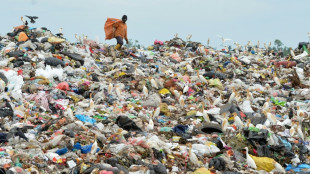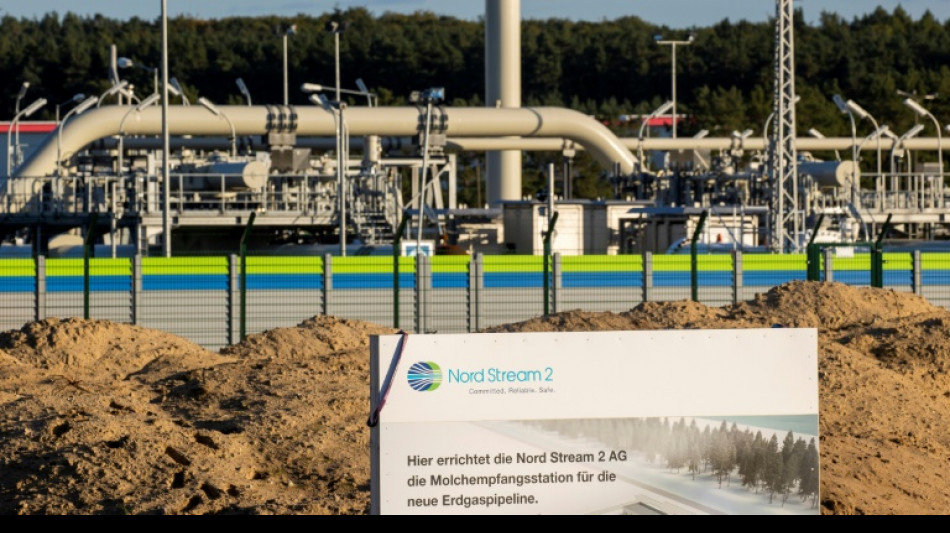
-
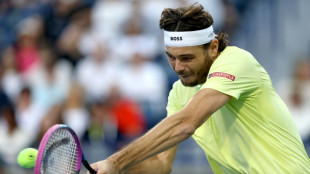 Second seed Fritz ends Canadian hopes at ATP Toronto Masters
Second seed Fritz ends Canadian hopes at ATP Toronto Masters
-
Japan sweats through hottest July on record

-
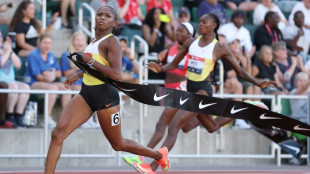 Jefferson-Wooden, Bednarek blaze to 100m titles at US trials
Jefferson-Wooden, Bednarek blaze to 100m titles at US trials
-
Son Heung-min to leave Tottenham this summer after decade
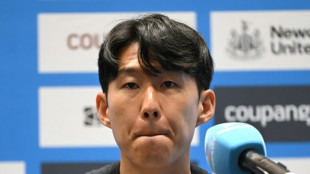
-
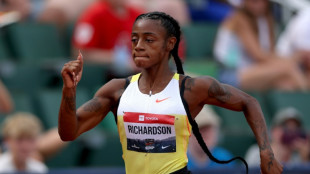 Richardson 'domestic violence' drama overshadows US trials
Richardson 'domestic violence' drama overshadows US trials
-
Bid to relocate US Space Shuttle Discovery faces museum pushback
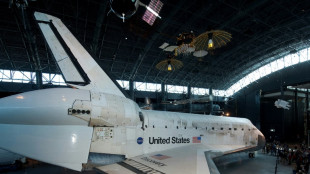
-
 Academics warn Columbia University deal sets dangerous precedent
Academics warn Columbia University deal sets dangerous precedent
-
Sevastova topples Pegula to book date with Osaka, Swiatek advances in Montreal
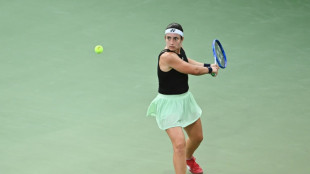
-
 Former Olympic champion Mu-Nikolayev fails in worlds bid
Former Olympic champion Mu-Nikolayev fails in worlds bid
-
Sensible and steely: how Mexico's Sheinbaum has dealt with Trump
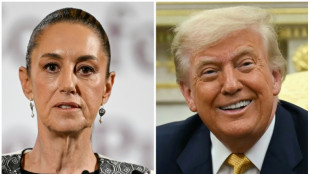
-
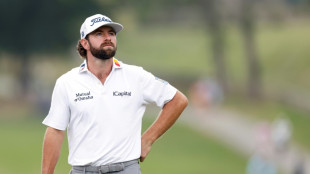 Young leads at weather-hit PGA Wyndham Championship
Young leads at weather-hit PGA Wyndham Championship
-
US sprint star Richardson out of trials following arrest
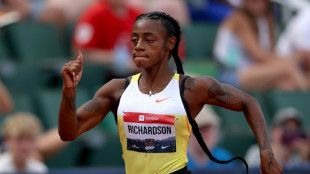
-
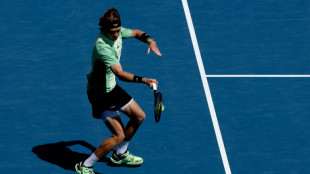 Rublev, Tiafoe sweat out three-set wins in Toronto
Rublev, Tiafoe sweat out three-set wins in Toronto
-
Ex-porn actor to be Colombian equality minister
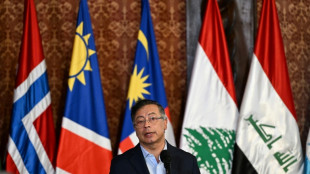
-
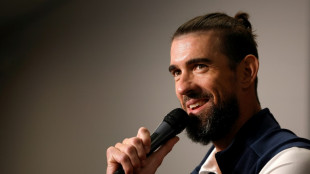 Olympic swim greats Phelps, Lochte, rip US World Championships performance
Olympic swim greats Phelps, Lochte, rip US World Championships performance
-
Brazilians burn Trump effigies as tariffs spark anger
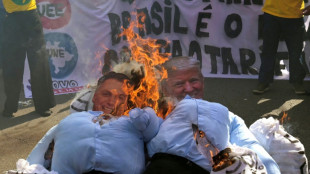
-
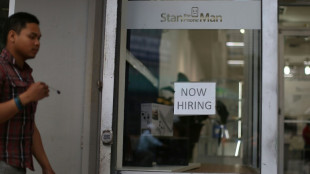 Global stocks fall sharply on weak US job data, Trump tariffs
Global stocks fall sharply on weak US job data, Trump tariffs
-
Lyles, Richardson scratch from 100m at US trials

-
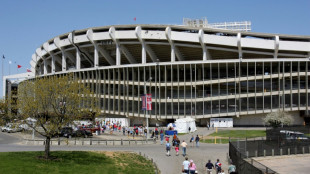 NFL Commanders win key vote in quest for new stadium
NFL Commanders win key vote in quest for new stadium
-
US Fed governor to resign early at critical time for central bank
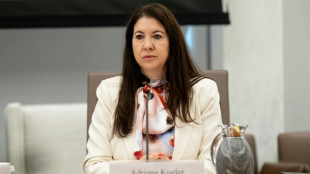
-
 US keeper Turner joins Lyon from Notts Forest, loaned to MLS
US keeper Turner joins Lyon from Notts Forest, loaned to MLS
-
Epstein accomplice Maxwell moved to minimum security Texas prison
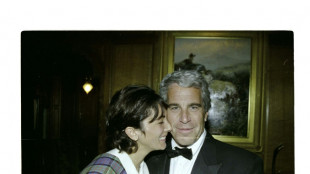
-
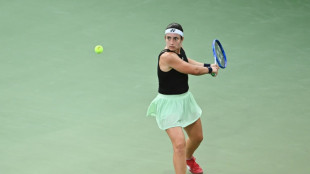 Sevastova shocks fourth-ranked Pegula to book date with Osaka
Sevastova shocks fourth-ranked Pegula to book date with Osaka
-
End of the chain gang? NFL adopts virtual measurement system
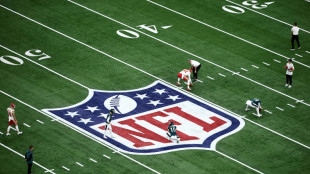
-
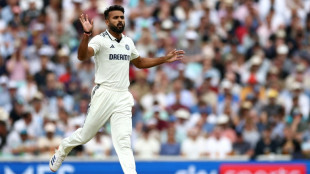 Deep lucky to escape Duckett 'elbow' as India get under England's skin
Deep lucky to escape Duckett 'elbow' as India get under England's skin
-
Search intensifies for five trapped in giant Chile copper mine
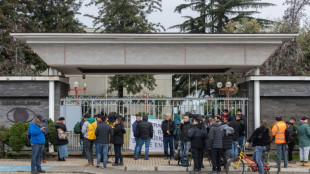
-
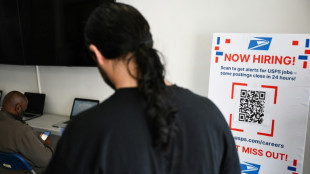 Trump orders firing of US official as cracks emerge in jobs market
Trump orders firing of US official as cracks emerge in jobs market
-
Trump deploys nuclear submarines in row with Russia
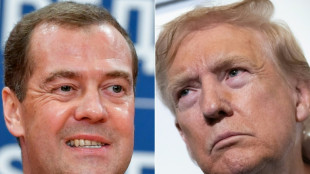
-
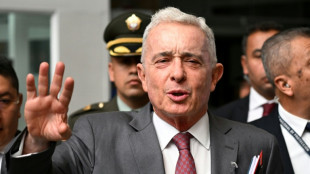 Colombian ex-president Uribe sentenced to 12 years house arrest
Colombian ex-president Uribe sentenced to 12 years house arrest
-
Wave of fake credentials sparks political fallout in Spain
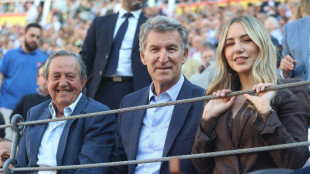
-
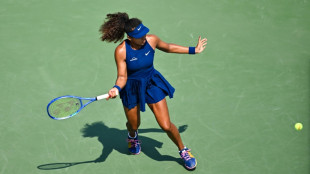 Osaka ousts Ostapenko to reach WTA fourth round at Canada
Osaka ousts Ostapenko to reach WTA fourth round at Canada
-
Rovanpera emerges from home forests leading Rally of Finland
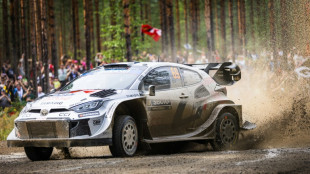
-
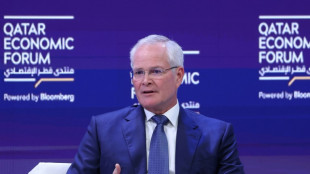 Exxon, Chevron turn page on legal fight as profits slip
Exxon, Chevron turn page on legal fight as profits slip
-
Prosecutors call for PSG's Achraf Hakimi to face rape trial
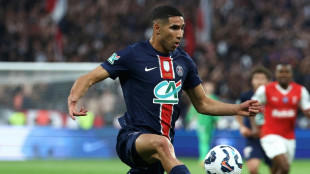
-
 Missing Kenya football tickets blamed on govt protest fears
Missing Kenya football tickets blamed on govt protest fears
-
India's Krishna and Siraj rock England in series finale
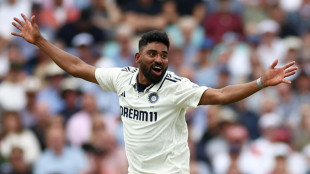
-
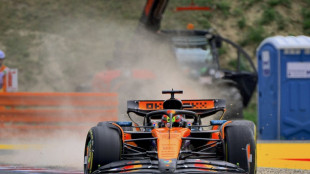 Norris completes 'double top' in Hungary practice
Norris completes 'double top' in Hungary practice
-
MLB names iconic Wrigley Field as host of 2027 All-Star Game
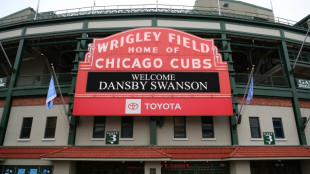
-
 Squiban doubles up at women's Tour de France
Squiban doubles up at women's Tour de France
-
International crew bound for space station

-
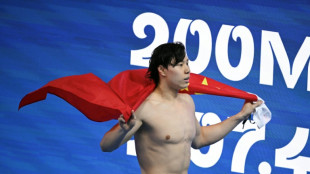 China's Qin takes 'miracle' second breaststroke gold at swim worlds
China's Qin takes 'miracle' second breaststroke gold at swim worlds
-
Siraj strikes as India fight back in England finale
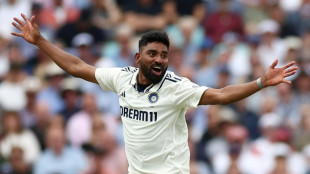
-
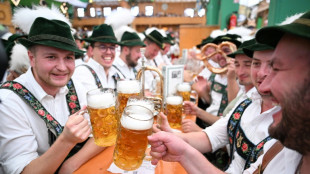 Brewed awakening: German beer sales lowest on record
Brewed awakening: German beer sales lowest on record
-
Indonesia volcano belches six-mile ash tower
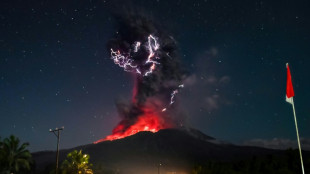
-
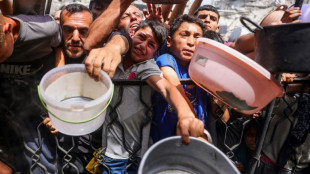 US promises Gaza food plan after envoy visit
US promises Gaza food plan after envoy visit
-
Musk's X accuses Britain of online safety 'overreach'

-
 France says it cannot save contraceptives US plans to destroy
France says it cannot save contraceptives US plans to destroy
-
Russian drone attacks on Ukraine hit all-time record in July
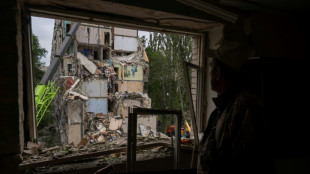
-
 Stocks sink on Trump tariffs, US jobs data
Stocks sink on Trump tariffs, US jobs data
-
Newcastle reject Liverpool bid for Isak: reports
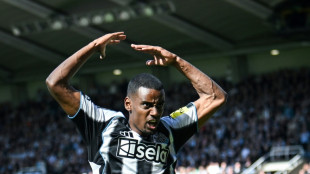
| SCU | 0% | 12.72 | $ | |
| CMSD | 0.34% | 23.35 | $ | |
| CMSC | 0.09% | 22.87 | $ | |
| BCC | -0.55% | 83.35 | $ | |
| SCS | -1.47% | 10.18 | $ | |
| NGG | 1.99% | 71.82 | $ | |
| RBGPF | 0% | 74.94 | $ | |
| JRI | -0.23% | 13.1 | $ | |
| GSK | 1.09% | 37.56 | $ | |
| AZN | 1.16% | 73.95 | $ | |
| RIO | -0.2% | 59.65 | $ | |
| BCE | 1.02% | 23.57 | $ | |
| BTI | 1.23% | 54.35 | $ | |
| VOD | 1.37% | 10.96 | $ | |
| RYCEF | 0.07% | 14.19 | $ | |
| RELX | -0.58% | 51.59 | $ | |
| BP | -1.26% | 31.75 | $ |

Nord Stream 2 pipeline: key card in West's hand against Russia
The Nord Stream 2 pipeline, set to double natural gas supplies from Russia to Germany, has become a key bargaining chip for the West in its bid to stop Moscow from invading Ukraine.
The pipeline, which Germany has defiantly pursued despite criticism from the United States and Eastern Europe, was completed last year but still requires regulatory approval.
Germany has now given a clear warning that it will not allow Nord Stream 2 to begin operating if Russia invades Ukraine, despite a severe energy crisis that has sent gas prices soaring in Europe.
Here is a look at the history of the pipeline, which critics say will increase Europe's dependence on Russian gas and Ukraine has described as a "geopolitical weapon".
- What is it? -
Running from Russia's Baltic coast to northeastern Germany, the 1,200-kilometre (745-mile) underwater Nord Stream 2 follows the same route as Nord Stream 1, which was completed over a decade ago.
Like its twin, Nord Stream 2 will be able to pipe 55 billion cubic metres of gas per year from Russia to Europe, increasing the continent's access to relatively cheap natural gas at a time of falling domestic production.
Russian giant Gazprom has a majority stake in the 10-billion-euro ($12 billion) project. Germany's Uniper and Wintershall, France's Engie, the Anglo-Dutch firm Shell and Austria's OMV are also involved.
The pipeline was completed in September 2021 but German authorities in November suspended the approval process, saying it needed to first become compliant with German law.
The operating company behind the project, Swiss-based Nord Stream 2 AG, said this week it had founded a German subsidiary as it presses ahead despite the rising diplomatic tensions.
- Why is it controversial? -
Nord Stream 2 bypasses Ukraine's pipeline infrastructure, depriving the country of around a billion euros annually in gas transit fees and, Kyiv fears, removing a key check on potential Russian aggression.
Ukraine, in conflict with Russia since Moscow's 2014 annexation of Crimea, also believes Nord Stream 2 will be used by Russia to exert political pressure.
In past disputes with Russia, Ukraine has had its gas supply cut off several times.
The US shares those concerns. As do several European nations, particularly Poland and eastern European countries wary of becoming too reliant on Moscow for energy security.
Analysts meanwhile disagree about Nord Stream's economic and environmental benefits.
A 2018 report by German think-tank DIW said the project was unnecessary and based on forecasts that "significantly overestimate natural gas demand in Germany and Europe".
- Why was Germany so keen? -
Europe's top economy imports around 40 percent of its gas from Russia and believes the pipeline has a role to play in the transition away from coal and nuclear energy.
Former chancellor Gerhard Schroeder serves as chairman of the Nord Stream's shareholders committee.
The previous German government under Angela Merkel deflected calls to abandon the project even as tensions rose with Russia over spying allegations and the poisoning and jailing of Kremlin critic Alexei Navalny.
Now, with energy prices soaring across Europe -- and Russia allegedly restricting existing gas supplies to put pressure on the West -- stopping Nord Stream 2 looks like a bigger risk than ever.
- What do other countries think? -
US President Joe Biden objects to Nord Stream 2, calling it a bad deal for Europe and a security risk.
US sanctions on Russian vessels laying the pipeline had long succeeded in delaying Nord Stream 2, angering Germany.
But Biden, eager to rebuild transatlantic ties after Donald Trump, last year unexpectedly waived sanctions on the Russian-controlled company behind the project.
Ukrainian President Volodymyr Zelensky, meanwhile, has long insisted that Nord Stream 2 poses a serious global security threat.
"We view this project exclusively through the prism of security and consider it a dangerous geopolitical weapon of the Kremlin," he said last year.
- What's the latest? -
With tensions with Moscow soaring over Russia's deployment of troops on the Ukraine border, the new German government under Chancellor Olaf Scholz, from the centre-left Social Democrats, has finally brought a change in Germany's stance on Nord Stream 2.
Scholz warned on his first day in office that there would be "consequences" for the pipeline if Russia makes a move on Ukraine.
This week, German Foreign Minister Annalena Baerbock told parliament that her government was "working on a strong package of sanctions" alongside allies that would include Nord Stream 2.
In Washington, a top official also voiced confidence that an invasion would stop Germany from activating the multibillion-dollar project.
"If Russia invades Ukraine, one way or another, Nord Stream 2 will not move forward," said Victoria Nuland, the undersecretary of state for political affairs.
Ch.Kahalev--AMWN
